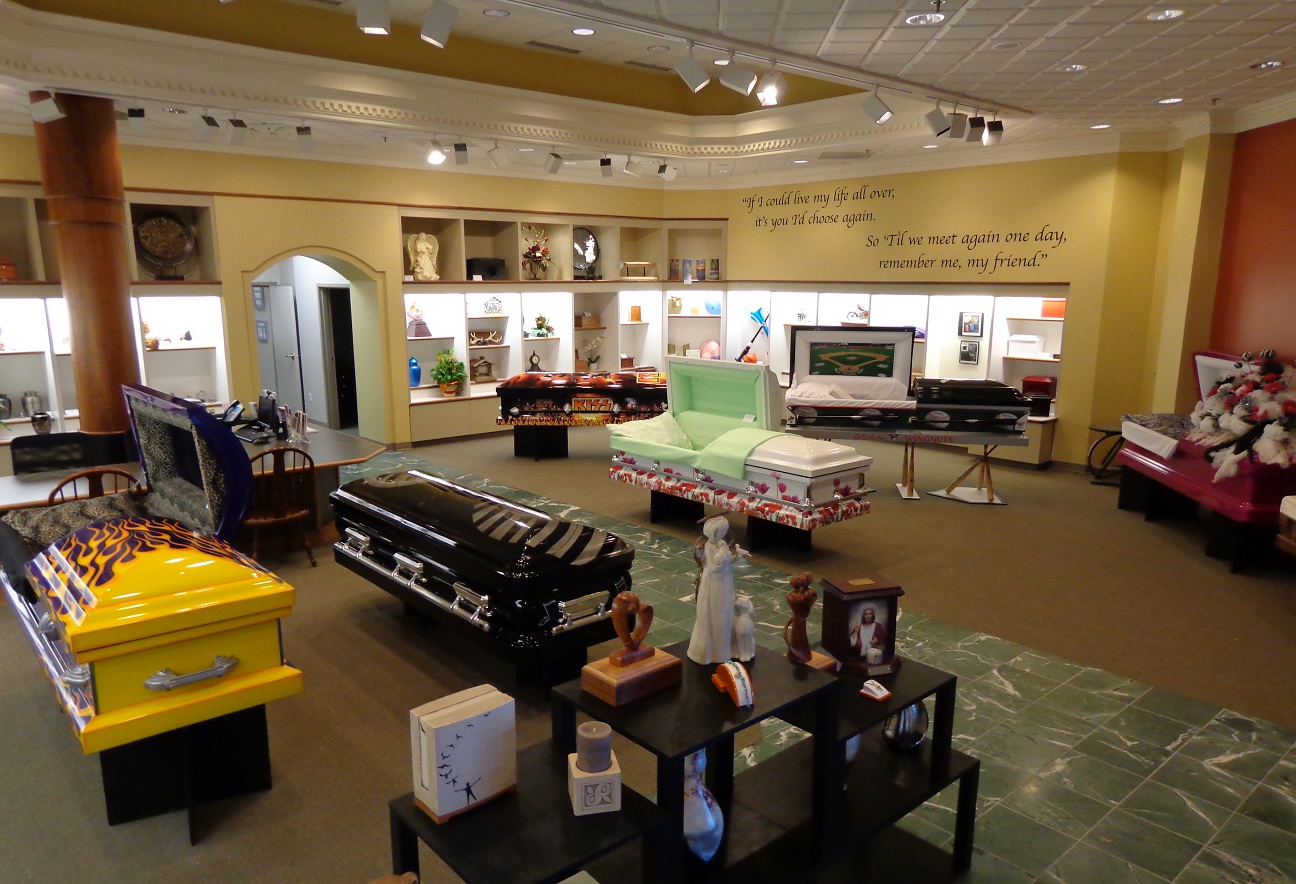Casket Retailer’s Expansion Challenges Funeral Industry
Originally publish by Huffington Post
The Amarillo Globe News reports that ‘Til We Meet Again, a retailer of caskets, urns and cremation jewelry, has opened its fourth location in Westgate Mall in Amarillo, Texas. According to the store’s website, the other three locations are also in malls: Esplanade Mall in New Orleans, Towne West Square Mall in Wichita, Kansas, and Christown Spectrum Mall in Phoenix, Arizona. The existence and expansion of this retailer into malls is fascinating because it may represent the beginning of a new trend of retail stores selling funeral goods. It is also interesting because it challenges longstanding norms between landlords and tenants that prohibit funeral homes in shopping centers and malls.
Traditionally, funeral goods were sold by funeral homes. This has been both a matter of custom and law. In at least 11 states, the sale of funeral goods by anyone other than licensed funeral homes and licensed funeral directors is illegal. In March 2013, that provision of Louisiana law was declared unconstitutional by the 5th Circuit Court of Appeals. Other federal courts which have considered similar laws in other states are split. But while the legality of those laws continue to be debated, consumer concerns about the cost of funerals continue to grow, with good reason.
Casket and urn costs can vary widely and are very difficult to track because the vast majority of these goods are sold directly to funeral homes and American manufacturers do not publish price lists. A recently released survey of funeral homes indicates that 75 percent of funeral homes mark up casket costs between 1.5x and 2.5x from wholesale to retail. Only a handful of funeral homes publish their casket price lists online. For example, a funeral home in Little Rock, Arkansas advertises caskets ranging from $1,900 for a twenty gauge steel silver crepe interior casket to $32,000 for a solid mahogany hardwood casket with a rose tan velvet interior. Meanwhile, on Costco.com, caskets (with standard shipping included) are available at prices ranging from $949.99 to $2,499.99. A number of online providers sell caskets and urns, including general merchandise sites like Amazon, Walmart.com and Overstock.com, and specialty sites like Bestpricecaskets.com, which offers an 18 gauge steel casket with a light pink velvet interior for $995, a solid mahogany casket with a white velvet interior for $1,995, and a brushed bronze casket for $2,995.
Federal law requires funeral homes to accept caskets from customers regardless of where they were purchased. Internet-savvy consumers have shown that they are comfortable with the idea of purchasing a casket from a retailer such as Costco or Amazon. As ‘Til We Meet Again recognizes, consumers willing to purchase a casket online would likely also be willing to purchase a casket from a “bricks and mortar” retailer in a mall. The mark up by these alternative sources is difficult to uncover, but economic theory would suggest that they would be more sensitive to competition than funeral homes because consumers generally purchase caskets from retailers other than funeral homes in advance, rather than at the time of need when they grieving and under pressure to make quick decisions.
The second reason that the presence of ‘Til We Meet Again in malls is significant is that standard “prohibited use” provisions in retail leases (particularly in leases with national retailers) prohibit landlords from permitting “funeral homes” or “funeral parlors” within a shopping center. In the four malls where ‘Til We Meet Again has a store, I assume that the mall owner has taken the position that a store that sells caskets, urns, and cremation jewelry but which does not handle bodies or arrange funerals is not a funeral home. That would seem to be a defensible position since these retailers should not be defined as funeral homes under state law. The expansion of ‘Til We Meet Again is particularly significant since Esplanade Mall and Towne West Square Mall are owned by Simon Property Group, the largest mall owner in America. This may represent a test for Simon — if the model is successful and customers aren’t turned off, we may see more casket stores in malls in the future.
Laws, lease provisions, and social norms that once limited the retail sale of funeral goods all appear to be relaxing. What impact these developments will have on consumer behavior and the viability of full service funeral homes is yet to be determined.




